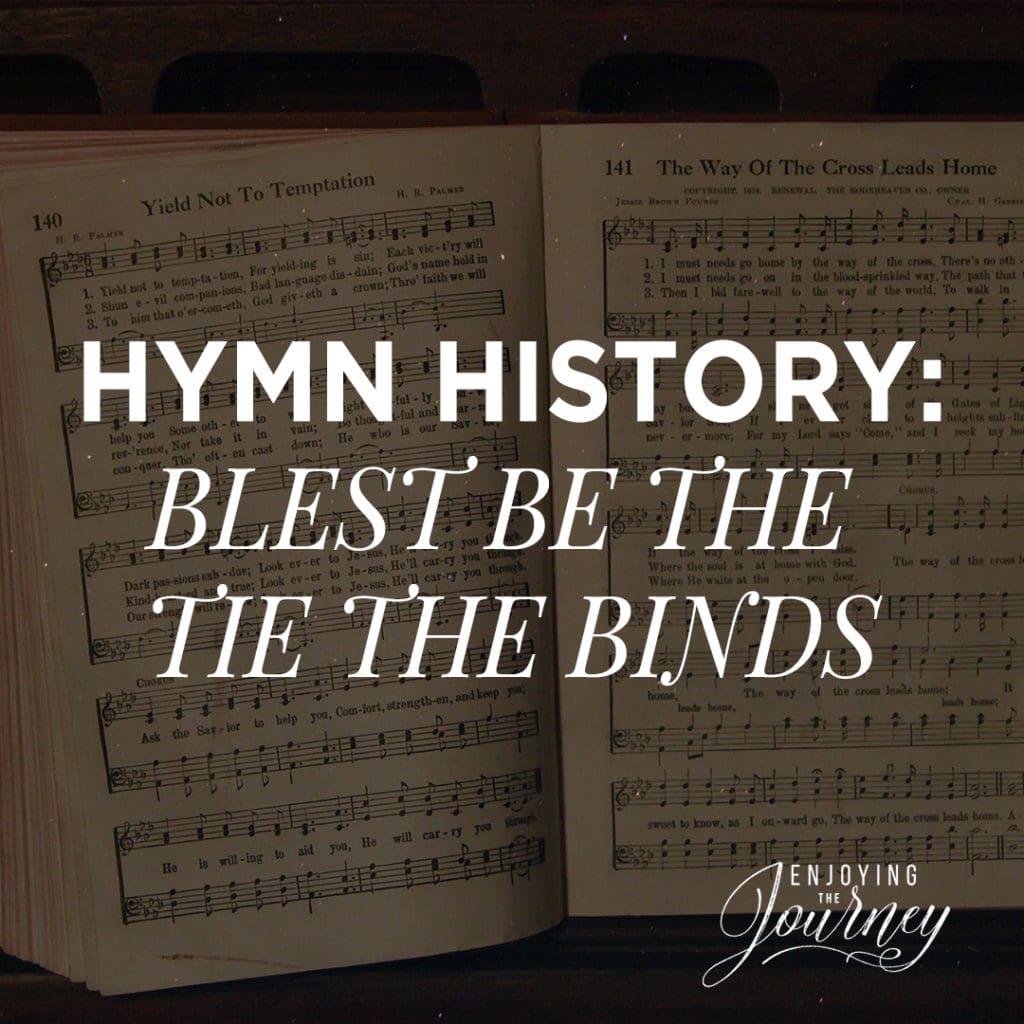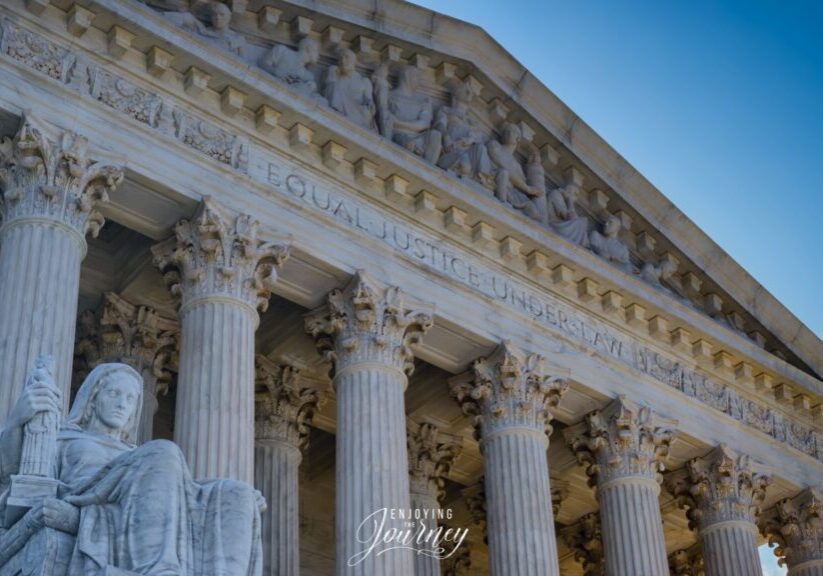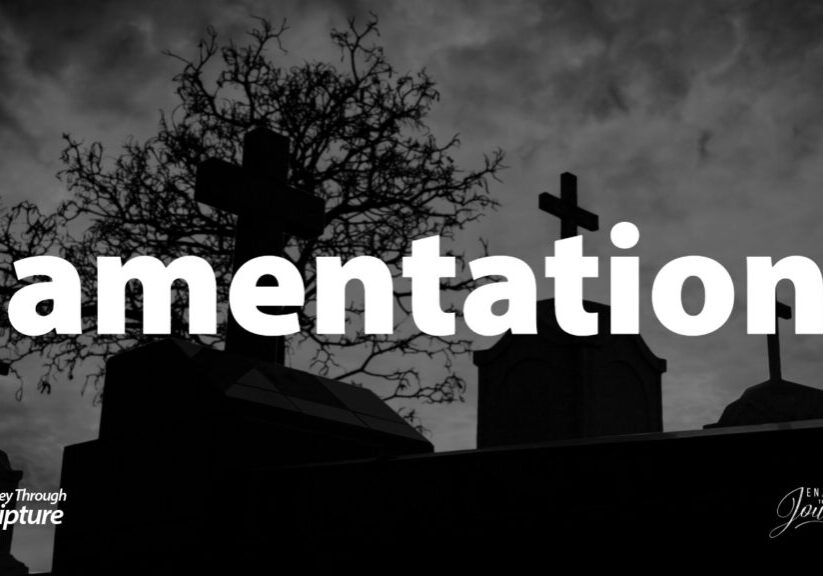
“Behold, how good and how pleasant it is for brethren to dwell together in unity! It is like the precious ointment upon the head, that ran down upon the beard, even Aaron’s beard: that went down to the skirts of his garments; As the dew of Hermon, and as the dew that descended upon the mountains of Zion: for there the LORD commanded the blessing, even life for evermore.” – Psalm 133:1-3
We are thrilled to share a series of brief accounts of how some of the great hymns of our faith were written. Each synopsis has been compiled through the research of Jerry Vargo and is shared by permission. It is our hope that these stories will be a help and encouragement to your Christian walk. This week we read the full and powerful story behind the lesser known hymn, “Blest Be the Tie the Binds.”
______________________________________________________________
John Fawcett was born on January 6th, 1740. He grew up in a poor family in Yorkshire, England. Fawcett, orphaned at 12, was “bound out” to a tailor in Bradford, where he worked long hours. He learned to read and eventually mastered Pilgrim’s Progress, the devotional classic by John Bunyan. Fawcett was converted at age 16 under the ministry of George Whitefield. The evangelist passed through Bradford in 1755 and spoke from John 3:14. Fawcett later recalled, “As long as life remains, I shall remember both the text and the sermon.” He first joined the Methodists, but three years later began attending the Baptist Church in Bradford, England. Upon telling Whitefield he wanted to preach, the evangelist gave Fawcett his blessing. He was ordained a Baptist minister at Wainsgate, Yorkshire.
John was asked to serve as the pastor of a small church in Wainsgate, at age 25. This describes Fawcett’s congregation at Wainsgate: “The people were all farmers and shepherds, poor as Job’s turkey; an uncouth lot whose speech one could hardly understand, unable to read or write; most of them pagans cursed with vice and ignorance and wild tempers.” The Established Church had never touched them; only the humble Baptists had sent an itinerant preacher there and he had made a good beginning. They were not able to pay much, and most of what John received as wages came in the form of wool, potatoes or other produce. When John and Mary began having children they found it difficult to make ends meet.
After serving at Wainsgate for 7 years, his reputation as a preacher grew to the extent that he was invited to substitute for the ailing pastor Dr. John Gill at Carter Lane Baptist Church in London. Upon Gill’s death, Fawcett was offered the position. The church was a very large and prestigious church in London that would be able to provide him a much larger salary.
The Fawcett family packed their household belongings and prepared to move. The day came and the congregation was in tears as John and Mary prepared to leave. Mary is quoted as saying, “I can’t stand it, John! I know not how to go.” John responded, “Lord help me Mary, nor can I stand it! We will unload the wagon!” And John is recorded to have said to the crowd gathered around them, “We’ve changed our minds! We are going to stay!” John and Mary unpacked the wagon and let the church in London know that they would not be accepting the position.
Fawcett then wrote this hymn to express his thoughts to the poor people with whom they had chosen to live and serve. The following Sunday, after their decision to remain at Wainsgate, John Fawcett preached from Luke 12:15, “A man’s life consists not in the abundance of the things he possesses.” He closed his sermon by reading the text of his new song Blest Be the Tie that Binds.
Fawcett’s own ministry continued to thrive. In 1777, a new chapel was built for him in nearby Hebden Bridge. He developed a ministry academy there and trained a new generation of pastors. His influence lasts through his support of the spread of the gospel, his voice in Christian congregational song, and his efforts in training the generation of pastors that would follow him.
John and Mary continued their ministry at Wainsgate for 54 years. Their salary was estimated to never be more than approximately £25 pounds ($200.00) per year. He lost his son Stephen to smallpox in 1774, his mother in 1782, and his daughter Sarah in 1785. These losses made Fawcett a more endearing pastor. In Fawcett, this “long-continued and heavy domestic affliction” brought about “the tenderest sympathy” towards those in his congregation who were also afflicted.
In 1811, Fawcett published his Devotional Commentary on the Holy Scriptures and was also honored with a Doctor of Divinity degree from Brown University, Providence, R.I.
Fawcett was the author of a number of religious poetry works, several of which attained a large circulation. Among John’s noteworthy writings was an essay titled, “Anger.” It became a favorite of King George III. It is said that the King offered John any gift or favor he desired. But John declined the offer with this statement: “I have lived among my own people, enjoying their love; God has blessed my labors among them, and I need nothing which even a king could supply.” Such was the heart and soul of the man who wrote these loving words. John Fawcett passed from this life on July 25th, 1817, at the age of 77.
1. Blest be the tie that binds
Our hearts is Christian love.
The fellowship of kindred minds
Is like to that above.
2. Before our Father’s throne
We pour our ardent prayers
Our fears, our hopes, our aims are one
Our comforts and our cares.
3. We share each other’s woes,
Our mutual burdens bear
And often for each other flows
The sympathizing tear.
4. When we asunder past
It gives us inward pain,
But we shall still be joined in heart,
And hope to meet again…
Discover more from Enjoying the Journey
Subscribe to get the latest posts sent to your email.







What a blessing! Thank you for the Hymn history’s!
Happy they are an encouragement. Praying for you my friend! God bless you all.
What a day that will be when joining those saints of old we will praise Him who alone His worthy.
Tears will fill our eyes, but the Perfect Servant will wipe them.
Because He lives, Raymond
Amen.